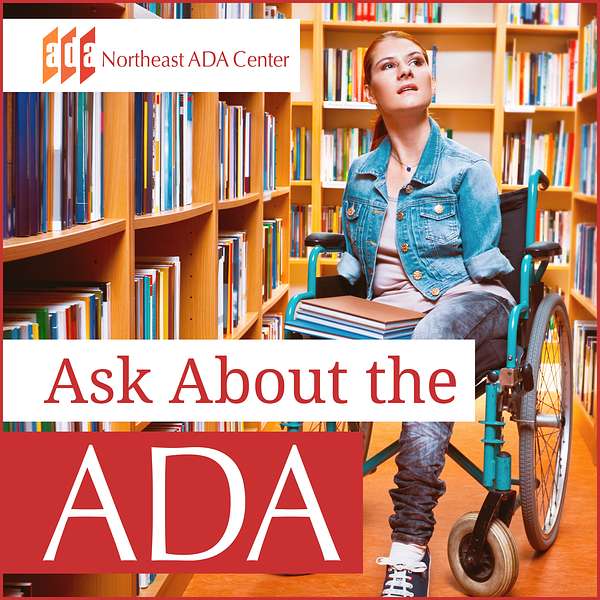
Ask About the ADA Podcast
Ask About the ADA Podcast
ADA Misunderstandings
Use Left/Right to seek, Home/End to jump to start or end. Hold shift to jump forward or backward.
Can you request ADA funding for your organization or appeal to an ADA agency in the event of discrimination? Joe Zesski responds to these questions and more in this week's Ask About the ADA episode! For a transcript of today's episode, please visit the Ask About the ADA podcast feed on BuzzSprout.
ADA Misunderstandings Episode 4(1)
[MUSIC PLAYING]
JOE ZESSKI: Hello. Welcome to Ask About the ADA, the podcast where we answer your questions about the Americans with Disabilities Act and how it might apply to your everyday life. On this edition of the podcast, we're going to address some common misperceptions or misunderstandings about the ADA, what it is, what it can do, and what it can't do. I'm Joe Zesski, the Program Manager here at the Northeast ADA, and let's go look at that question now.
I'm on the board of a nonprofit. We are looking to provide an ADA-accessible splash pad. Is there any way that we can get ADA funding? And this actually gets to a very common misperception about what the ADA is.
The Americans with Disabilities Act, first and foremost, is a civil rights law. And like other civil rights laws, it's intended to prevent discrimination and to create equality in terms of access and opportunity.
However, it's important to keep in mind that there are things that does not do. Particularly with the Americans with Disabilities Act, there is no funding attached to the law. So in the law itself, there is no provision to require the government to pay for funds so that businesses or nonprofits, as in the case of this particular question, to make ADA accessibility possible.
With that being the case, you have to look for alternatives. There are nonprofits and some government agencies, state or local government agencies, as well as federal, that may have different grant opportunities that nonprofits could apply for. There are also tax deductions for businesses to help them comply with their ADA obligations for removing barriers or for providing effective communication, et cetera.
But it's important to keep in mind that the ADA is a law. It's not a single entity. There is no, quote-unquote, "ADA agency." There are different federal departments that have responsibilities for enforcing different parts of the law, but there is no one single, quote-unquote, "ADA" that someone can contact.
Another important thing to keep in mind about the ADA and that's often misunderstood is that it's largely a complaint-driven law, meaning that ADA enforcement often comes down to when people pursue enforcing their rights under the law, whether through filing complaints with a federal agency or through taking private action through the courts.
Finally, it's important to keep in mind, too, that the ADA doesn't apply in every single situation. There are limits to where it applies and where it does not. So it's relevant when you're talking about employment, particularly with private employers or state and local government employers, but not in federal employment. It applies to state and local governments, their services, programs, and activities, as well as to the goods and services offered by businesses and nonprofit agencies that are open to the public.
So be aware, there are limitations to the ADA, but it is a powerful tool for enforcing the rights and encouraging the equal opportunity for people with disabilities. Unfortunately, though, for our question here, there is no direct funding from the ADA as I mentioned when we started this conversation. So instead, I would suggest to this individual that they may need to seek grant opportunities to help them build their accessible facilities or to adapt it.
If you have questions about accessibility, please feel free to contact us here at the Northeast ADA Center. You can find us on the web at northeastada.org org, or you can also call us at 1-800-949-4232. As always, I'd like to thank our student producer, Will Warren, for editing this podcast. Thank you as well to Peter Quinn of the Yang Tan Institute's media team for doing final edits and polishing. And thank you all for listening and being a part of our conversation.
[MUSIC PLAYING]